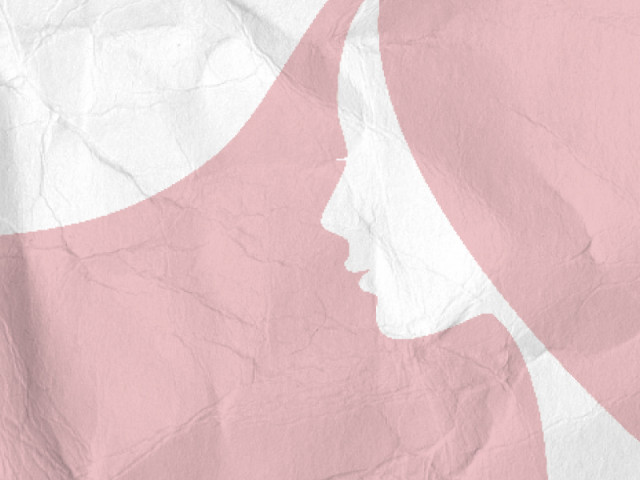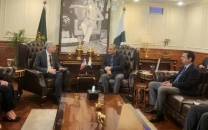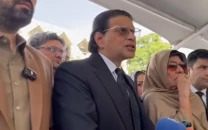The situation of women rights activists in Pakistan
A profile on Dr Fauzia Saeed, Pakistan’s strongest voice for women rights.

She is soft-spoken and optimistic. She is famous and friendly, even though her life has been one continuous struggle to steer Pakistani women out from the clutches of injustice, discrimination and oppression.
Fouzia Saeed, a PhD from the United States, is one of Pakistan’s strongest voice for women rights.
“It is difficult to become a women rights activist in a country like Pakistan where women cannot move freely like men,” says Dr Saeed, but “difficult” could never stop her. She says she never accepted those boundaries set by society.
“Discrimination motivated me from my childhood to ask questions such as why girls are always stopped doing works boys are allowed to do.” She was not ready to simply accept that a girl had to be restrained. Why? “Why could I not go out of the house to play like boys? Why could I not attend musical programmes like boys?” For her it was evident; she had to become a women’s right activist.
She recalls when General Ziaul Haq, the then president, visited a college in Peshawar where she was studying Home Economics and she dared to stand up to him and be outrageously courageous. “I accused him of not doing enough for our college.” Recalling it, she says makes her now smile about her own audacity. “I demanded from that very conservative general to allow TV in the girls’ hostels and to resolve some other issues.” She admired Zulfikar Ali Bhutto, and let the general feel her anger. “I was so harsh to Ziaul Haq that his guards came up to me and made me sit quietly,” she remembers. Fouzia Saeed has not softened since.
Born in Lahore in 1959, she moved to Peshawar with her slightly liberal parents. She respected them and was not a rebellious daughter. She wore the traditional shawl from head to toe and saw them as necessary agreements with the society around her. Unlike others, she was allowed to go outside on her own. That was bearable.
She was a top scorer in school and received a prestigious scholarship to the United States. Her teachers and fellow students encouraged her to leave Peshawar, and once she agreed there was no looking back from there onwards.
Once in Minnesota, she quickly found herself another cause to meddle in: she acted as the mediator in the rivalry between Palestine and Israeli students on the campus. She has since worked for the United Nations and other international development organisations. But her main cause remains her work on women’s issues, social justice and democracy.
She is currently the director of Mehergarh, an institute committed to transforming the youth of this country. She is also an active member of AASHA, an alliance against sexual harassment at workplace. She is also spearheading a campaign against bonded labour.
The threat of ultra conservative extremism in the region is of utter concern to her. “Threats from conservative elite as well as religious conservatives are a norm now,” she says. “Society’s so-called leaders are always after you. We are called those women who are inspired by the West,” she says, and it seems to frustrate her immensely that she is called “an NGOnised woman; a westernised woman”.
In addition, the urgency to work on anti-Talibanisation has moved her to be a part of a nationwide movement against this vicious process. She identified that Talibanisation has created hurdles in access to women by governments and NGOs alike - due to which women were denied basic rights such as healthcare and education.
She has worked in Pakistan, USA, Bahamas, Philippines, Bangladesh, Cambodia, Thailand, India, Afghanistan, Fiji and several other countries in the Pacific.
Of course, Saeed could not leave the subject of Afghanistan, the country next door where women were suffering badly. She first visited Afghanistan in 1970s before USSR invasion. “It was a different world back then. My family went to Kabul for holidays, believe me, Kabul was like Europe at that time.”
In 2005, her husband got a job in Afghanistan and she again visited Afghanistan. She realised that on this side of the border, there was even more reason to fight for women’s rights. She decided to work for Afghan women as well and joined hands with Afghan NGOs, Muheet Saleem and RAWA, as head of international development organisation and trained activists there.
She knows that it’s a long struggle, on both sides of the border. Even though the situation for women in the Pakistani side is better, much better, women in both sides are facing a long struggle and the road ahead is full of hurdles. But Saeed is not one to give up her dream: the dream to bring social change to these societies.
*Bari Baloch, 28, is from Balochistan and has been working for The Nation daily newspaper for the last five years; Shaker Shokran, 28, for Harzoo National TV for the last five years; while Mohammed Arsalan, 31, works with Geo TV.
This report was written during the Af-Pak Fellowship 2012 in collaboration with the Friedrcih-Ebert-Stiftung.
Published in The Express Tribune, August 19th, 2012.



















COMMENTS
Comments are moderated and generally will be posted if they are on-topic and not abusive.
For more information, please see our Comments FAQ